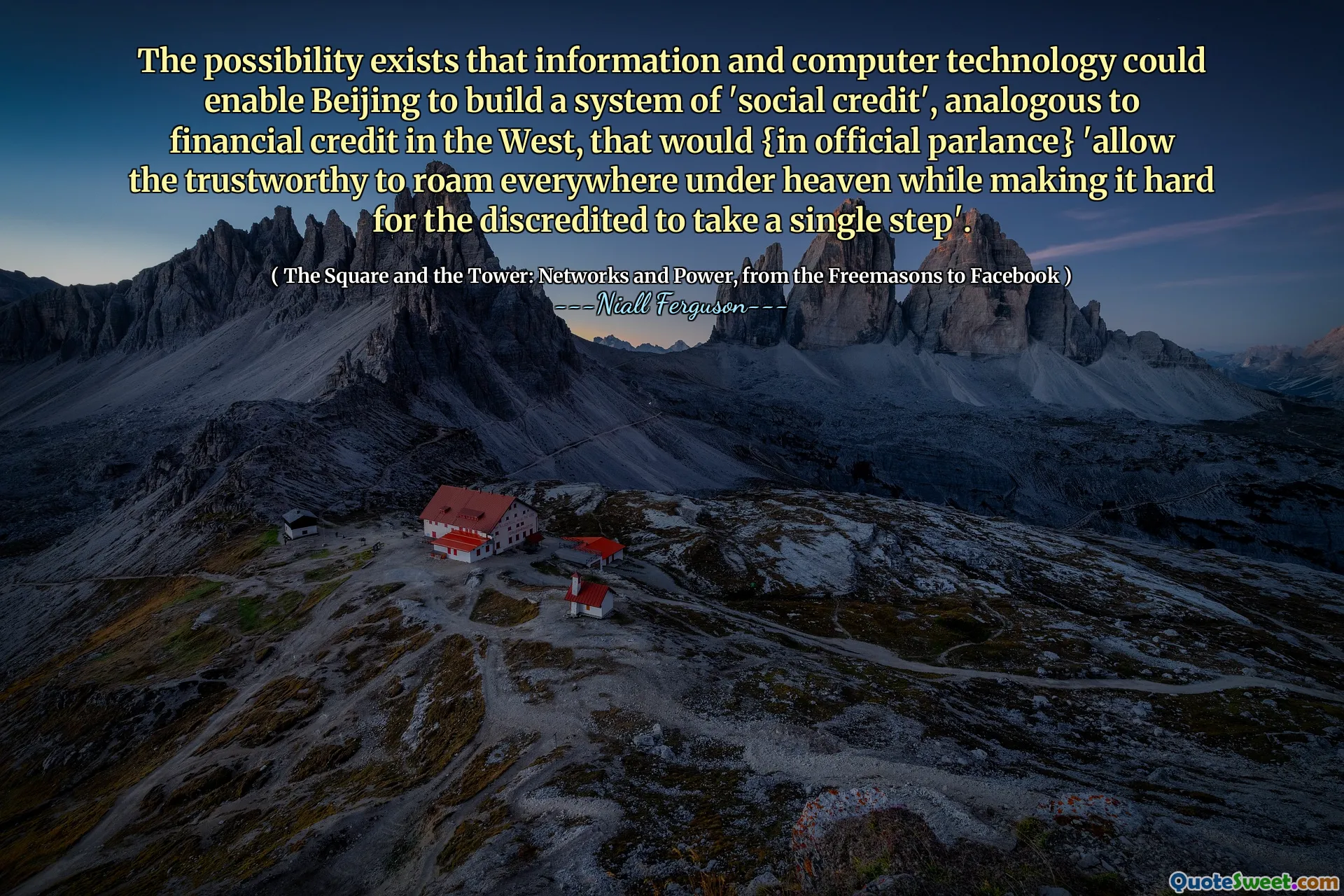
The possibility exists that information and computer technology could enable Beijing to build a system of 'social credit', analogous to financial credit in the West, that would {in official parlance} 'allow the trustworthy to roam everywhere under heaven while making it hard for the discredited to take a single step'.
The concept of a social credit system in China, similar to financial credit systems in the West, suggests that advancements in information and computer technology could facilitate this development. This system would effectively reward trustworthy individuals with greater freedom and opportunities, while severely hindering those deemed untrustworthy. The implications of such a system could reshape the way society operates, emphasizing compliance and conformity.
Niall Ferguson, in his book, "The Square and the Tower: Networks and Power," highlights the potential of this social credit system to create a divide among citizens. Those who are rated positively within the system would enjoy extensive privileges, while those with poor ratings could find their mobility and freedoms restricted. This raises concerns about surveillance and the impact on personal freedom in a society governed by trustworthiness metrics.











